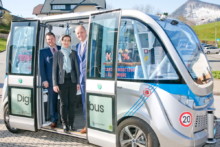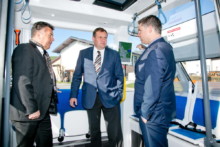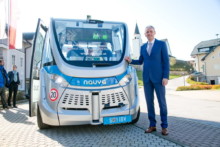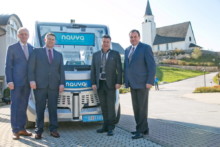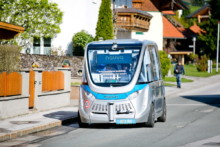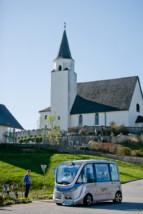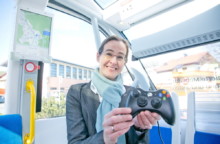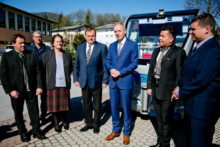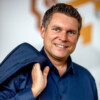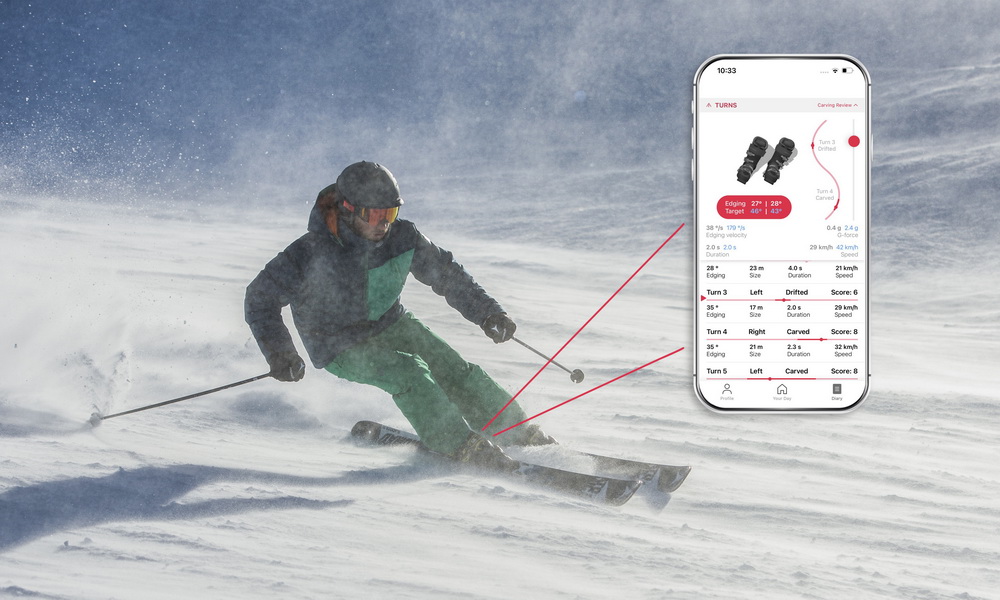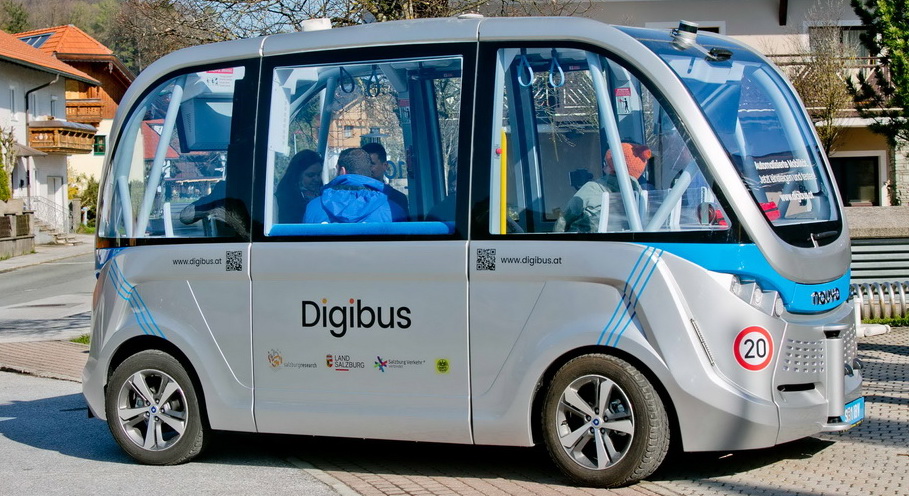
The Digibus is in Koppl
After a first guest appearance (with a special permit) in the autumn of 2016, Austria became the first self-employed minibus to become a true Salzburg citizen. The first station for the Digibus is the municipality Koppl in Flachgau close to Salzburg. From May, there will be test drives on public roads. Salzburg Research is thus the first organization in Austria to receive a test certificate from BMVIT in order to carry out tests with an autonomous vehicle on public roads on the basis of the AutomFahrV.
Under the direction of Salzburg Research, the Digibus explores important questions about automated mobility for the “last mile”. The last mile – the way from the stop to the home or destination – is a critical aspect for the customer acceptance of existing public transport. Automated vehicles could close this gap in the future.
The test drives with the self-propelled Digibus are a first building block of a planned Salzburg test environment for automated, local mobility. “There are still many questions to be answered before automated minibuses can be operated without a driver 24 hours a day and 7 days a week”, says Karl Rehrl, research manager for intelligent mobility at Salzburg Research. “In the medium term, the Digibus is mainly available for applied research. As a first step, we want to evaluate the technology in the context of test journeys in order to develop them systematically with partners. We will, however, always offer test drives for interested passengers to explore acceptance and personal experiences.”
The test enfironment is intended to provide digital and physical test infrastructures in order to test and/or systematically futher develop self-propelled vehicles for public transport in test and real operation.
“The question is no longer whether automated mobility comes, but how we can esign automated mobility in the future in order to provide an efficient, environmentally compatible and affordable mobility system. An open test enfironment enables a common learning for all parties involved in order to answer open questions about automated mobility in the coming years, thus enabling a targeted development or decision making”, says Karl Rehrl.
Research interest in automated driving
Open research questions include:
- Design of the mobility system: How can automated vehicles fit sensibly into existing (public) traffic systems? How should these systems be designed in the future?
- Human-to-machine communication: In everyday traffic, a lot of human-to-human communication happens. This applies, e.g. passenger communication: How does the bus interact with its passengers when there is no driver in the car (and will not be accompanied by a companion in the future)? How does communication with other road users work? For example, how does the bus recognize that another driver granted the bus right of way?
- Machine-to-machine communication: How does the bus communicate with other vehicles? How about the infrastructure, such as traffic lights?
- Special traffic situations: How does the Digibus deal with large gradients and with changing ground conditions (wetness, snow, ice etc.)? What happens when items are on the road?
- Social factors: How safe do passengers feel?
- Etc.
For the complete construction of the test environment it is planned to bring other minibuses from other manufactures to Salzburg. Interested companies, research institutions, public organizations are invited to use the test environment for their own test or research questions. Contact us!
The Digibus is twittering!
Do you always want to know when and where the bus is on the road? Then follow him on Twitter and/or Facebook:
https://twitter.com/digibus_at | https://www.facebook.com/digibus.at
More information: www.digibus.at
